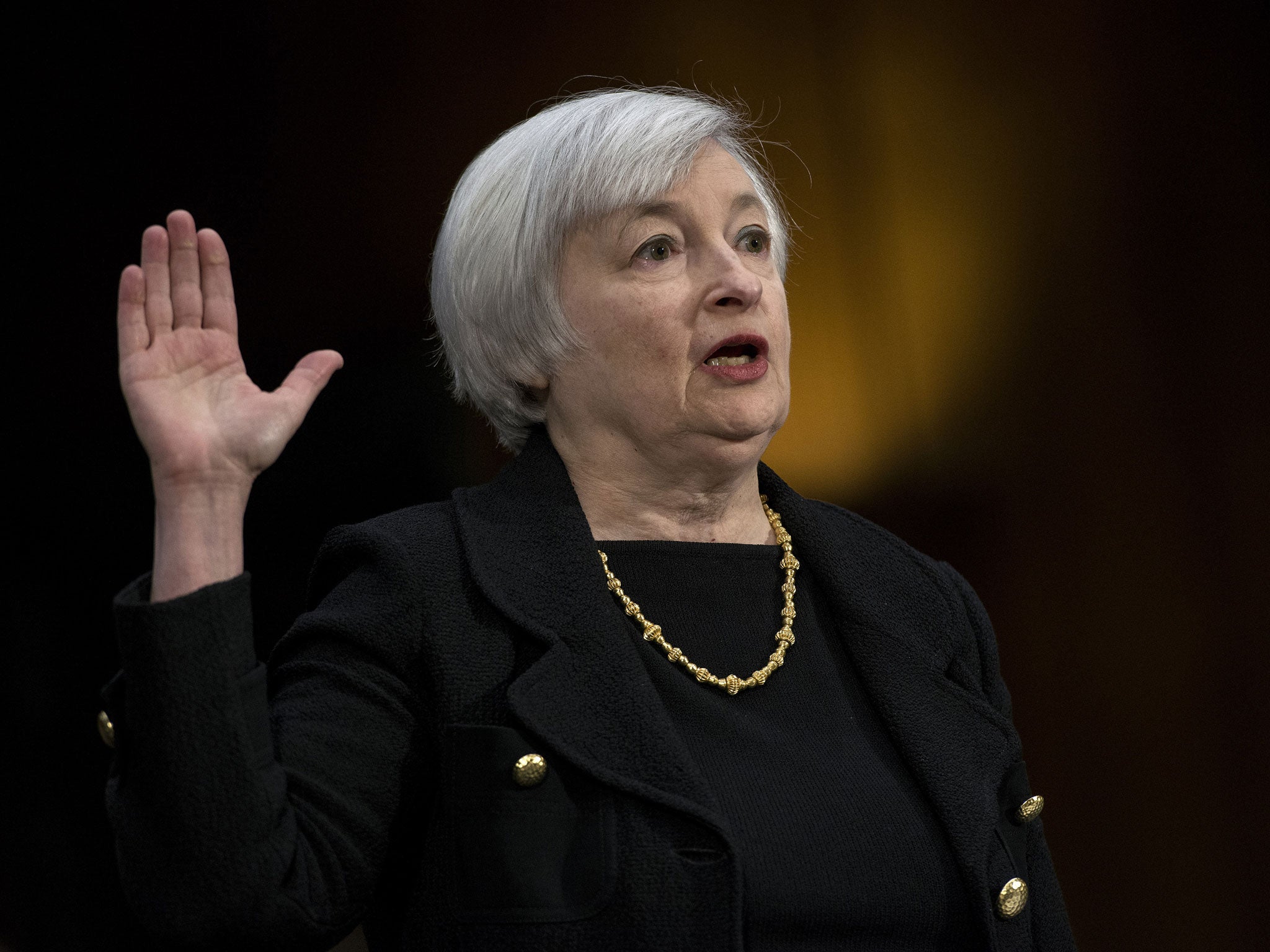The five things you need to know about Janet Yellen, the world's most powerful economist
If confirmed by the Senate, Yellen will become the first woman to lead the Fed

Your support helps us to tell the story
From reproductive rights to climate change to Big Tech, The Independent is on the ground when the story is developing. Whether it's investigating the financials of Elon Musk's pro-Trump PAC or producing our latest documentary, 'The A Word', which shines a light on the American women fighting for reproductive rights, we know how important it is to parse out the facts from the messaging.
At such a critical moment in US history, we need reporters on the ground. Your donation allows us to keep sending journalists to speak to both sides of the story.
The Independent is trusted by Americans across the entire political spectrum. And unlike many other quality news outlets, we choose not to lock Americans out of our reporting and analysis with paywalls. We believe quality journalism should be available to everyone, paid for by those who can afford it.
Your support makes all the difference.A US Senate panel has advanced Janet Yellen's nomination to become the first woman to lead the Federal Reserve, setting up a final vote in the full Senate after Thanksgiving.
So, who is the woman set to manage the world's biggest economy? Here are the five things you need to know:
1. If confirmed by the Senate, Yellen will become the first woman and the first democrat to head the Fed since Paul Volcker stepped down in 1987. She was nominated by President Barack Obama and became the obvious choice for the job after front-runner Larry Summers dropped out of the race to replace Ben Bernanke back in September.
2. She is a dove. Yellen dispelled market uncertainty over tapering insisting that she intends to keep the printing presses running until the recovery is strong enough to support job creation. The Fed is currently pumping $85 billion a month into the US economy in bond purchases, holding close to $4 trillion in assets putting downwards pressure on long-term interest rates- that's four times pre-crisis levels.
In a letter sent to Republican Louisiana Senator David Vitter, the 67-year-old economist highlighted the benefits of quantitative easing in "fostering its economic objectives".
3. Jobs, jobs, jobs. Yellen has made it clear that prolonged unemployment is the biggest risk facing the US recovery and the most damaging factor over the long term. During her testimony before the Senate Banking Committee, she stressed that the labour market is underperforming, while inflation remains muted, and the Fed has room to more.
4. Yellen was one of the first Fed economists to spot the housing bubble, but failed to detect the size of the problem. In 2005, she signalled that fast rising home prices entering bubble territory "could be large enough to feel like a good-sized bump in the road, but the economy would likely be able to absorb the shock.". However, Yellen admitted she "did not see and did not appreciate what the risks were with securitization, the credit ratings agencies, the shadow banking system".
5. She is the vice chair of the Board of the Federal Reserve System, and has served as president and chief of the Federal Reserve Bank San Francisco and led the White House Council of Economic Advisers under President Bill Clinton. She has a PhD in economics from Yale University.
Join our commenting forum
Join thought-provoking conversations, follow other Independent readers and see their replies
Comments